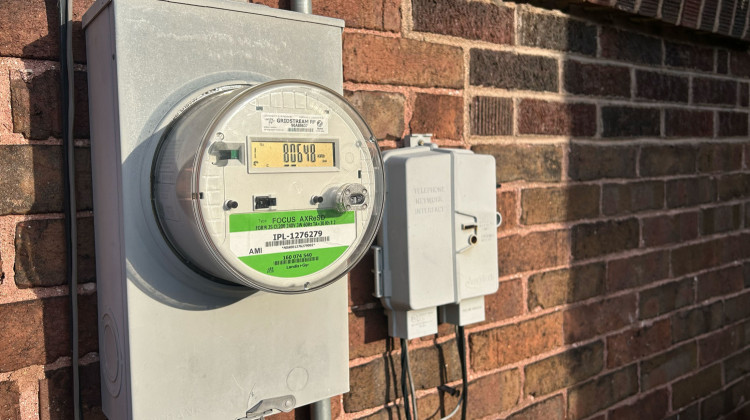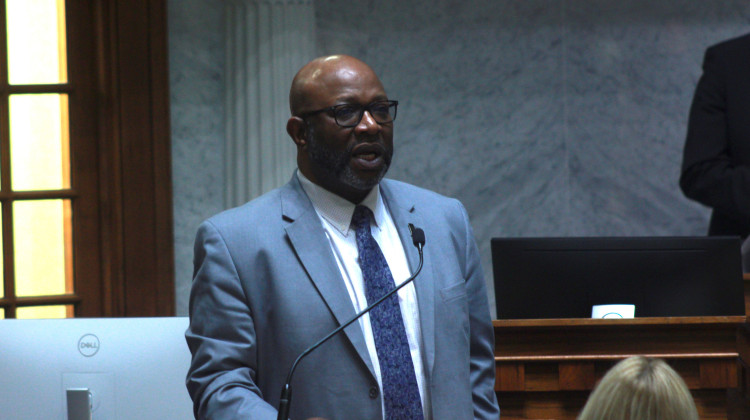
Indiana University's Andrea Webster shows how a city can use the Environmental Resilience Institute Toolkit.
Rebecca Thiele/IPB NewsIndiana communities now have new tools to help them adapt to the shifting climate. Mayors and representatives from about 18 Indiana cities heard more at the Climate Leadership Summit in Indianapolis on Thursday.
One of those tools is the Indiana University Environmental Resilience Institute Toolkit, or ERIT. It's an online toolkit that lets local governments know what climate impacts they can expect in their cities, what projects they can do to better adapt, how to fund them, and examples of cities that have completed them.
Andrea Webster has been working on the toolkit for about nine months. She says ERIT takes climate adaptation information from all over the web and puts it into one helpful place for Midwestern cities.
“Doing sustainability and resilience work in a community, it’s hard to know where to get started or what’s the best use of your time,” says Webster.
Webster says what's on the website right now is only the beginning. The Resilience Institute hopes to get feedback from users and receive more case studies from Midwest cities, especially Indiana.
The city of South Bend has already started on its climate plan. At the summit, South Bend Director of Sustainability Therese Dorau talked about how the city is making an inventory of all its greenhouse gas emissions.
Dorau says making an inventory like this is fairly common for individual businesses or city buildings — but calculating a whole community's impact is a much bigger job. She says city is using software to help.
“Understanding the sources of a community’s emissions helps us as a city to identify strategies to reduce those emissions and having a baseline allows us to track our progress over time,” she says.
The software also compares South Bend's emissions with that of other cities. Dorau says the city hopes to release the results of the greenhouse gas emissions inventory along with it's climate action plan in six months.
In the past few years, several cities have made headlines with ambitious goals to curb their climate footprints, but not as many of those goals have been reached. How can cities do better?
"I see the most success for municipal sustainability programs when they mirror and uplift and support the values and the needs that the community already has," says Dorau.
Dorau says, for example, South Bend is focused on increasing the quality of life for its underserved communities and preparing for changing weather. She says increased flooding and extreme heat has been a serious situation for South Bend in the past couple of years.
Indiana Environmental reporting is supported by the Environmental Resilience Institute, an Indiana University Grand Challenge project developing Indiana-specific projections and informed responses to problems of environmental change.
 DONATE
DONATE







 Support WFYI. We can't do it without you.
Support WFYI. We can't do it without you.